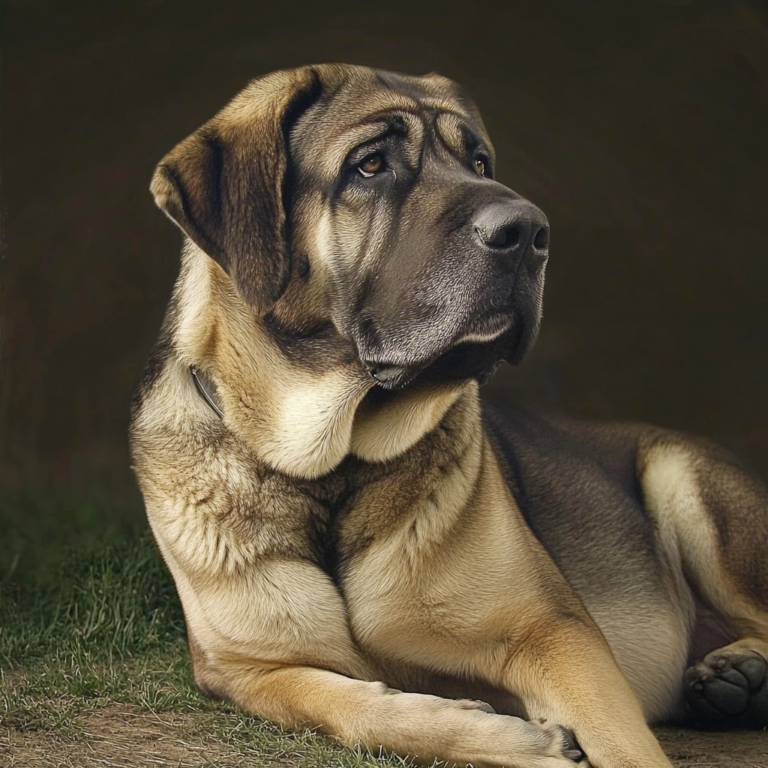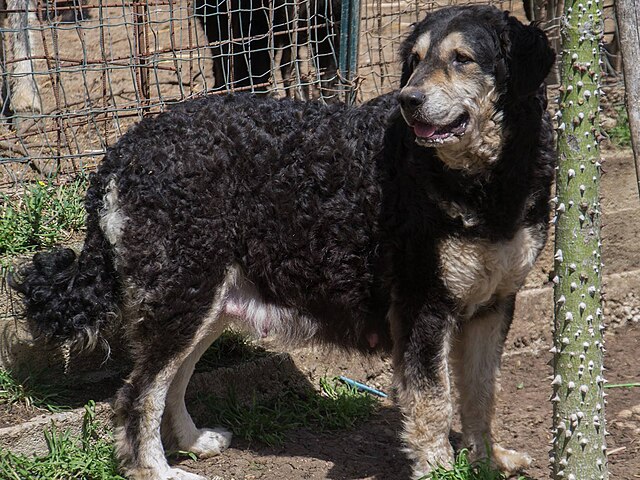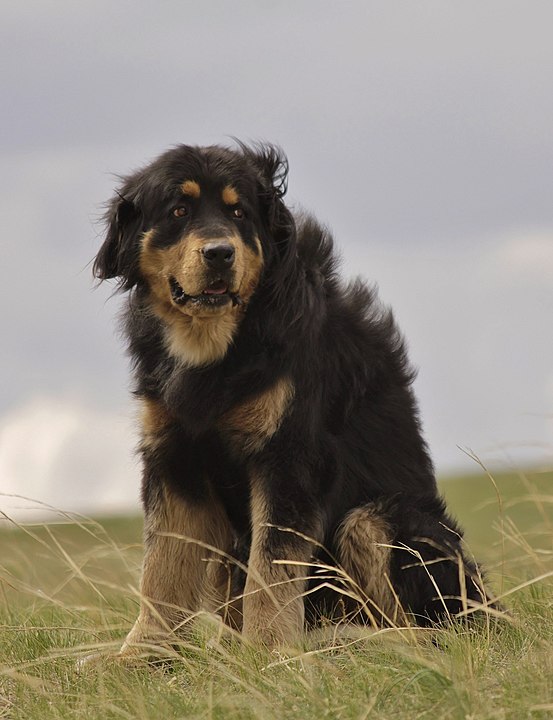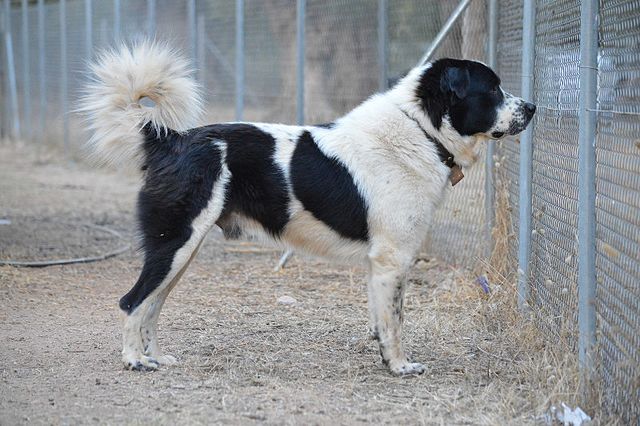The Alentejo Mastiff (AKA the Portuguese Mastiff) is cool and composed until he needs to take action. This commanding livestock guardian breed is self-assured and should never be timid – although his large frame often means that most humans won’t mess with him anyway. Although one of his original jobs was to guard livestock, he makes an excellent guard of home and property as well. Another early job of this Portuguese breed was that of big game hunter. These dogs would hunt in packs to take down wild boar.
The coat of the Alentejo is short-medium length, with a thick and dense double coat. Generally, this is a low-maintenance dog when it comes to grooming, although they require more grooming when they shed (usually twice a year). They require very infrequent bathing (unless being shown) and the only trimming that is required is clipping the hair from the bottoms of the feet. Like all dogs, however, make sure to keep up with nail care!
Generally a medium-active dog, the Alentejo is said to exert most of his energy during the night – which makes sense since most of his protective duties historically happened at night! This doesn’t mean that they will only protect at night, however, only that they may be more alert and vigilant. Without a flock of sheep, they will guard their owners (including children) and general territory. When not watching over them, the Alentejo Mastiff can be playful and affectionate with children and are usually extremely gentle.
The Alentejo Mastiff is said to be “sober” in the Portuguese standard, which roughly means that he is serious. Like most molosser breeds and livestock guardians, this trait means that an owner needs to be just as serious as he is. Putting the time in to socialize him early and often, as well as dedicating energy to training him, are very important. This is not the breed for a novice owner! A dog of this size who hasn’t received adequate training or socialization can become a liability. When it comes to obedience training the breed is very independent, unlike a Lab or other “traditional” obedience breeds. Combine this with the facts that they have stubborn natures and tend to mature slowly and one might see that they will take a bit more work than many breeds.
The Alentejo does need regular exercise and it is recommended that he be given about an hour’s walk each day if possible (30 minutes may be fine for lower energy individuals). This is not an apartment dog for many reasons, not the least of which is his suspiciousness of strangers. He does best in a large home with a fully fenced yard, without cats or small animals that tend to roam. As they also don’t tend to do great with other dogs, they work best in only-dog situations.
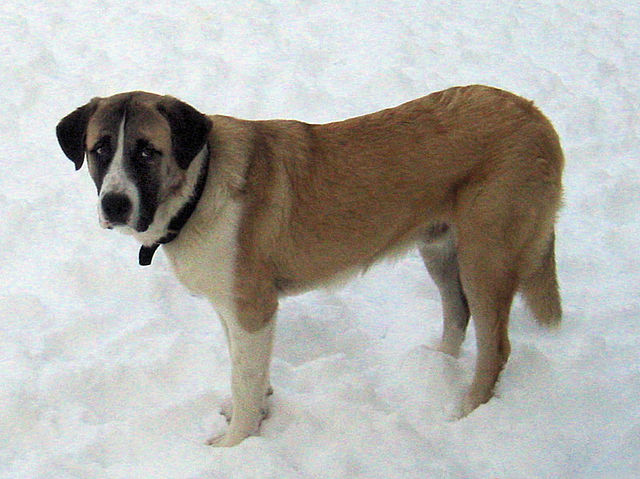
Alentejos aren’t generally noisy dogs but will bark when necessary. The breed isn’t big on strangers, especially those that come over to the house. A large, dominant dog such as this must have regular supervision when people approach the property – they do not take kindly to pet sitters, gardeners or other workers showing up to an unattended home and will take it upon themselves to guard their territory. Alentejos have a strong will and aren’t just passive observers. It is important to note that the breed is more likely to go after someone in a defensive way versus an offensive way, however if they are the only ones at home they will make the decision as to if someone is acting in a way that requires them to be defensive. Do you own an Alentejo Mastiff?
